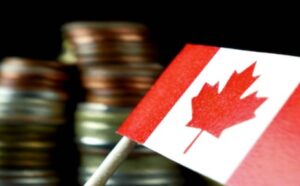
Take Advantage of Government Programs for Buyers
A home is usually the single largest investment that most people make in their lives. Achieving your dream can be made easier by taking advantage of various Government Programs for home buyers. Some of the programs are targeted to first-time buyers, while others apply more generally. Other programs benefit those in the industrial, commercial and multi-unit property market. As your REALTOR® I can provide information on these programs and help you to determine your eligibility.
First-Time Home Buyers’ Tax Credit
First-time home buyers may be eligible for a 15 per-cent income tax credit for closing costs. An individual will be considered a first-time home buyer if neither the individual nor the individual’s spouse or common-law partner owned and lived in another home in the calendar year of the home purchase or in any of the four preceding calendar years. click here for more details
First-Time Home Buyers’ Incentive
The First-Time Home Buyer Incentive makes it easier for you to buy a home and lower your monthly mortgage payments. This program is a shared equity instrument. It works by getting an extra 5% or 10% of the down payment of your home and then repaying the Government either 5% or 10% of the property’s market value at the time of repayment, up to a maximum repayment amount equal to:
- In the case of appreciation, the Incentive amount plus a maximum gain to the Government of 8% per annum (not compounded) on the Incentive amount from the date of advance to the time of repayment; or
- in the case of a depreciation, the Incentive amount minus a maximum loss to the Government of 8% per annum (not compounded) on the Incentive amount from the date of advance to the time of repayment.
Just as the name implies, this incentive is for first-time homebuyers. You’re considered a first-time homebuyer if:
- you have never purchased a home before
- you did not occupy a home that you or your current spouse or common-law partner owned in the last 4 years (the 4-year period begins on January 1 of the fourth year before the Incentive is funded and ends 31 days before the date the Incentive is funded)
- you have recently experienced the breakdown of a marriage or common-law partnership (even if you don’t meet the other first-time home buyer requirements) Click here to get more information from the government website
RRSP Home Buyers’ Plan
The Home Buyers’ Plan (HBP) is a program under which you can, generally, withdraw up to $35,000 from your registered retirement savings plan (RRSPs) to buy or build a qualifying home, subject to eligibility and conditions, then pay back the funds to their RRSP over 15 years. Withdrawals that meet all applicable HBP conditions do not have to be included in your income, and your RRSP issuer will not withhold tax on these amounts. However, before you can withdraw funds you must have entered into a written agreement to buy or build a qualifying home which you must occupy no later than one year after buying or building the home. If you buy the qualifying home together with your spouse or other individuals, each of you can withdraw up to $35,000. You cannot withdraw an amount from your RRSP under the HBP if you or your spouse owned the home more than 30 days before the date of your withdrawal. click here for more details
HST New Housing Rebate
You may be eligible to claim a rebate for a part of the HST you pay on the purchase price of a newly constructed home or the cost of building your home. The purchase price of resale homes are exempt from the HST. The purchase price of newly constructed homes are subject to HST. click here for more details
Land Transfer Tax Rebates (Provincial and Toronto)
First-time buyers of new and re-sale homes are eligible to receive rebates of the provincial and Toronto land transfer taxes. The maximum provincial land transfer tax (LTT) rebate for first-time buyers is $4,000 and the maximum Toronto LTT rebate for first time buyers is $4,475. A FULL rebate of the Toronto land transfer tax is also available for ALL buyers who entered into Agreements of Purchase and Sale prior to December 31, 2007. click here for more details
Requirements for Government-Backed Mortgage Insurance
Mortgage loan insurance is generally required by lenders when home buyers make a down payment of less than 20% of the purchase price. Mortgage loan insurance helps protect lenders against mortgage default, and enables consumers to purchase homes with a minimum down payment starting at 5%. The Government of Canada offers government-backed mortgage insurance with restrictions through its crown agency, Canada Mortgage and Housing Corporation (CMHC). click here for more details
Tax-Free First Home Savings Account (FHSA)
In the 2022 Budget, the Government of Canada proposed the introduction of the Tax-Free First Home Savings Account (FHSA), a new registered plan to help Canadians save towards their first home by allowing account holders to contribute up to $40,000 over the lifetime of the plan.
An FHSA combines the features of a Registered Retirement Savings Plan (RRSP) and Tax-Free Savings Account (TFSA) . Like an RRSP, contributions would be tax-deductible and qualifying withdrawals to purchase a first home would be non taxable, like a TFSA. However, with an FHSA and unlike the Home Buyers’ Plan, the funds do not need to be paid back.
Rules and Effective Date
- The FHSA was enacted by Bill C-32, which received Royal Assent on December 15, 2022.
- The enacted rules permit individuals to use the FHSA and the Home Buyers’ Plan together in respect of the same qualifying home purchase.
- The FHSA comes into being on April 1, 2023
Key Features
- This new registered plan gives prospective first-time home buyers the ability to save $40,000 on a tax-free basis.
- Like a Registered Retirement Savings Plan (RRSP), the contributions will be tax-deductible
- Withdrawals to purchase a first home, including from investment income, will be non-taxable, much like a Tax-Free Savings Account (TFSA).
- Annual contribution limit will be $8,000 and in addition there will be a $40,000 lifetime contribution limit.
- Contribution for 2023 will be the full $8,000 annual limit.
Qualifications
To Qualify to open the FHSA:
- An individual must be a resident of Canada and at least 18 years of age.
- An individual must be a first-time home buyer, which means that they may have not owned a home in which they lived anytime in the proceeding for years
- An individual would not be permitted to open up an FSHA after December 31 on the year individual turns 71
Closing the Account
- Individuals that make a qualifying withdrawal could transfer any unwithdrawn savings on a taxfree basis to an RRSP or RRIF until December 31 of the year following the year of their first qualifying withdrawal.
- An FHSA would cease to exist after December 31 the year in which the earliest of these events occurs:
o The fifteenth anniversary of the individual first opening an FHSA; or
o The individual turns 71 years old. - If an individual has not used the funds to purchase a qualifying home, the funds:
o would be transferred on a tax-free basis into an RRSP or Registered Retirement Income Fund (RRIF) OR
o would otherwise have to be withdrawn on a taxable basis.
Exceptions
- The current Home Buyers Plan will continue to be available as under existing rules.
- However, an individual would not be permitted to make both an FHSA withdrawal and an HBP withdrawal in respect of the same qualifying home purchase.
- Individuals would not be able to contribute to their spouse or common-law partner’s FHSA and claim a deduction. Click here for more details on the FHSA
Have questions about programs for home buyers? Just call or email me and I would be glad to help answer them.

